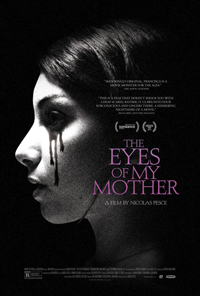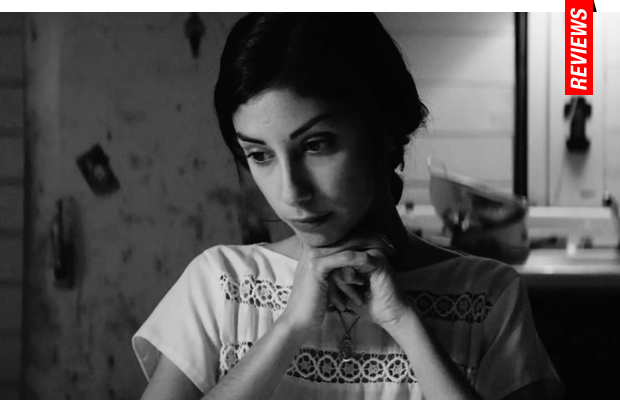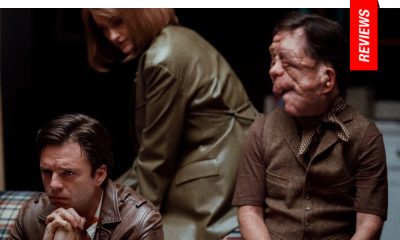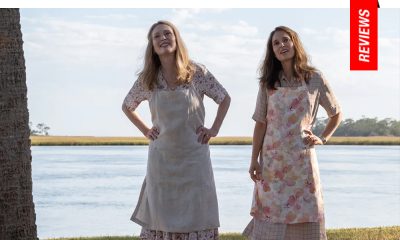Reviews
The Eyes of My Mother | Review
And Soon the Darkness: Pesce’s Debut a Superbly Stylized Nightmare
 If Portugal were the portal to some Lynchian netherworld of dreams deferred, it would look something like Nicolas Pesce’s sumptuously grotesque directorial debut, The Eyes of My Mother. A striking palette of black and white cinematography from Zach Kuperstein recalls the scarred, destitute lives from the ruins of Arturo Ripstein’s filmography, a macabre yet uncharacteristically sound portrait of psychological unraveling. We all know the kind of potent degeneration to be fashioned on isolated farmhouses where dysfunctional children are paired with musings of surgical practices, as seen in films from Haneke or even last year’s Goodnight Mommy. Pesce, who previously directed multiple music videos, as well as assistant editor on Josh Mond’s James White (2015), debuts a spectacularly gruesome calling card which may deconstruct the notion of the physical lens through which living beings observe the world, but seems to hint these particular organs are hardly inherent windows to the soul.
If Portugal were the portal to some Lynchian netherworld of dreams deferred, it would look something like Nicolas Pesce’s sumptuously grotesque directorial debut, The Eyes of My Mother. A striking palette of black and white cinematography from Zach Kuperstein recalls the scarred, destitute lives from the ruins of Arturo Ripstein’s filmography, a macabre yet uncharacteristically sound portrait of psychological unraveling. We all know the kind of potent degeneration to be fashioned on isolated farmhouses where dysfunctional children are paired with musings of surgical practices, as seen in films from Haneke or even last year’s Goodnight Mommy. Pesce, who previously directed multiple music videos, as well as assistant editor on Josh Mond’s James White (2015), debuts a spectacularly gruesome calling card which may deconstruct the notion of the physical lens through which living beings observe the world, but seems to hint these particular organs are hardly inherent windows to the soul.
At a secluded farmhouse, a weathered mother (Diana Agostini) teaches her young daughter Francisca (Olivia Bond) about anatomy and death, imparting all her knowledge and skill from her former life as a surgeon in Portugal. When a disturbed visitor (Will Brill) suddenly visits their farmhouse one day, Francisca’s idyllic childhood comes to a screeching halt. Left alone with her notably introverted father (Paul Nazak), Francisca grows into a young woman (Kika Magalhaes) with only a terrifying secret in the barn to call her friend. But as her father’s health deteriorates, Francisca becomes worried about who else will keep her company at the farm, and we begin to understand just how warped her worldview has become.
The Eyes of My Mother begins with the kind of secret teased in The Secret in Their Eyes (2009/2015) and develops into what could have been a follow-up to The Little Girl Who Lives Down the Lane (1976). Pesce leads a deliberate pace through three chapters of little Francisca’s development, each ironically titled for a figure or notion we’re about to see perverted (Mother, Father, Family). Eventually we circle back to its opening moments, which hints at the young woman’s own background considering the advanced age of the actors portraying her parents.
Kuperstein’s stark frames stray over the faded, grim interior of the farmhouse, moments of extreme violence edited by Pesce himself for a disturbing comical undercurrent for the fashioning of Francisca, who is eventually comparable to the sociopathic tendencies of any number of male serial killers haunting cultural periphery throughout history. The trio of producers Sean Durkin, Antonio Campos, and Josh Mond should clue you into what to expect from Pesce’s tone, which also recalls a variety of Euro filmmakers, from early Julio Medem to Lucia Puenzo’s The Good Doctor (aka Wakolda).
But just when you think you can predict the gruesome inevitability of Pesce’s finale, he throws an unexpected curveball with its third segment, which asserts the narrative’s contemporary setting. There’s an otherworldliness here, as nothing seems to add up, such as where and when this is taking place, as well as why Francisca’s parents left Portugal and a lucrative profession behind.
Kika Magalhaes is the breakout talent here as the grown Francisca, a woman whose loneliness is as understandable as her unconscionable actions are horrific. A bizarre aside where Francisca preys on a young English-speaking Asian woman she picks up at a place called “Donna’s Bar” (which reinforces a sort of “Twin Peaks” element of particular displacement where English is the primary language with a notably diverse characters) is particularly comedic, and says volumes of Francisca’s characterization as a predator who has only learned to be a victim of her own making. The idea of possessing and moulding another human being for one’s own disposal is the film’s dark heartbeat, and as the title indicates, Francisca’s warped worldview is filtered through problematic notions of death and dismemberment.
The Eyes of My Mother announces Pesce as a particularly talented director to watch, securing him a reputable seat amongst his impressive group of producers.
★★★★/☆☆☆☆☆
Reviewed on January 22nd at the 2016 Sundance Film Festival – NEXT programme. 77 Min.
Los Angeles based Nicholas Bell is IONCINEMA.com's Chief Film Critic and covers film festivals such as Sundance, Berlin, Cannes and TIFF. He is part of the critic groups on Rotten Tomatoes, The Los Angeles Film Critics Association (LAFCA), the Online Film Critics Society (OFCS) and GALECA. His top 3 for 2021: France (Bruno Dumont), Passing (Rebecca Hall) and Nightmare Alley (Guillermo Del Toro). He was a jury member at the 2019 Cleveland International Film Festival.



































